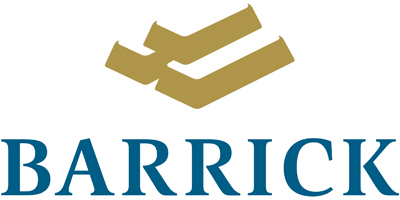In Conversation with Barrick’s Vice President of CSR, Peter Sinclair
Feb 1, 2013 9:30 AM ET
As Vice President of Corporate Social Responsibility (CSR), Peter Sinclair leads the development and implementation of Barrick’s community relations and social responsibility programs. He joined Barrick in 2005 to establish the company’s CSR group, which today consists of a specialized team at Barrick’s corporate headquarters in Toronto and several hundred employees at the company’s operations around the world. Prior to joining Barrick, Sinclair spent more than 15 years working in international development in numerous countries, including Rwanda, Swaziland, the Republic of Congo and Chechnya.
You graduated with a degree in business from Queen’s University, but instead of joining the corporate world you went to work at an NGO in Africa. Why? After graduating, I wanted to do something different and, in my own small way, make a difference. So, I went to Swaziland and basically fell in love with doing community development work in Africa. How did you make the transition from an NGO to Barrick, the world’s largest gold mining company? I was working as a consultant for an organization called the Business Partners for Development. In 2004, I did consulting work for Barrick on a water project in Tanzania. Kelvin Dushnisky — then Vice President of Regulatory Affairs, and today the company’s Senior Executive Vice President — led the establishment of a CSR function for the company. One of his first acts was to hire me. When I first visited the Bulyanhulu mine, I had been working in Tanzania for years and I was absolutely shocked by the sheer scale of the operation. Here was this massive industrial complex operating in rural Tanzania, where the NGO I worked for had struggled to develop very basic hand-pump installation programs. The Barrick mine showed me that the private sector had the potential to offer what I couldn’t. I had worked on water projects, health projects and all sorts of income-generating projects, but at the end of the day, what people really wanted was a job. Or a small contract. Or some other way to make a living, to put food on their table. That’s something the private sector can provide on a significant scale. How has CSR changed since you entered the field? I think the world has changed dramatically. Communities used to be passive recipients of mining impacts. That’s not true anymore. Communities are well-connected locally and internationally and understand the potential benefits of mining. That’s a good thing; communities are becoming more empowered. They stand up. They protect their rights, their environment and their cultural fabric. In response, mining companies have had to evolve because, otherwise, they wouldn’t be able to operate. That means hiring locally to ensure we maximize wages delivered into the hands of the communities. It means providing skills training to ensure local residents are qualified to work in our mines, and it means conducting comprehensive assessments to determine how our operations will impact the environment and the community, and explaining how we’re going to mitigate those impacts. Is there a tension between the company’s CSR mandate and the fact that Barrick is, first and foremost, a business that must generate a return for shareholders? I don’t see a huge tension. I view it as two sides of the same coin. There are so many things that we do that are good for the community and good for the business. Training people, buying local goods and services, providing a secure environment, improving health care and water facilities – all of that helps secure our ability to operate and fosters development in the community. The fact of the matter is, we’re guests in the communities where we operate, so we have to behave like guests. That means being accountable for our actions. Click here to continue reading the interview with Barrick's VP of CSR Peter Sinclair


